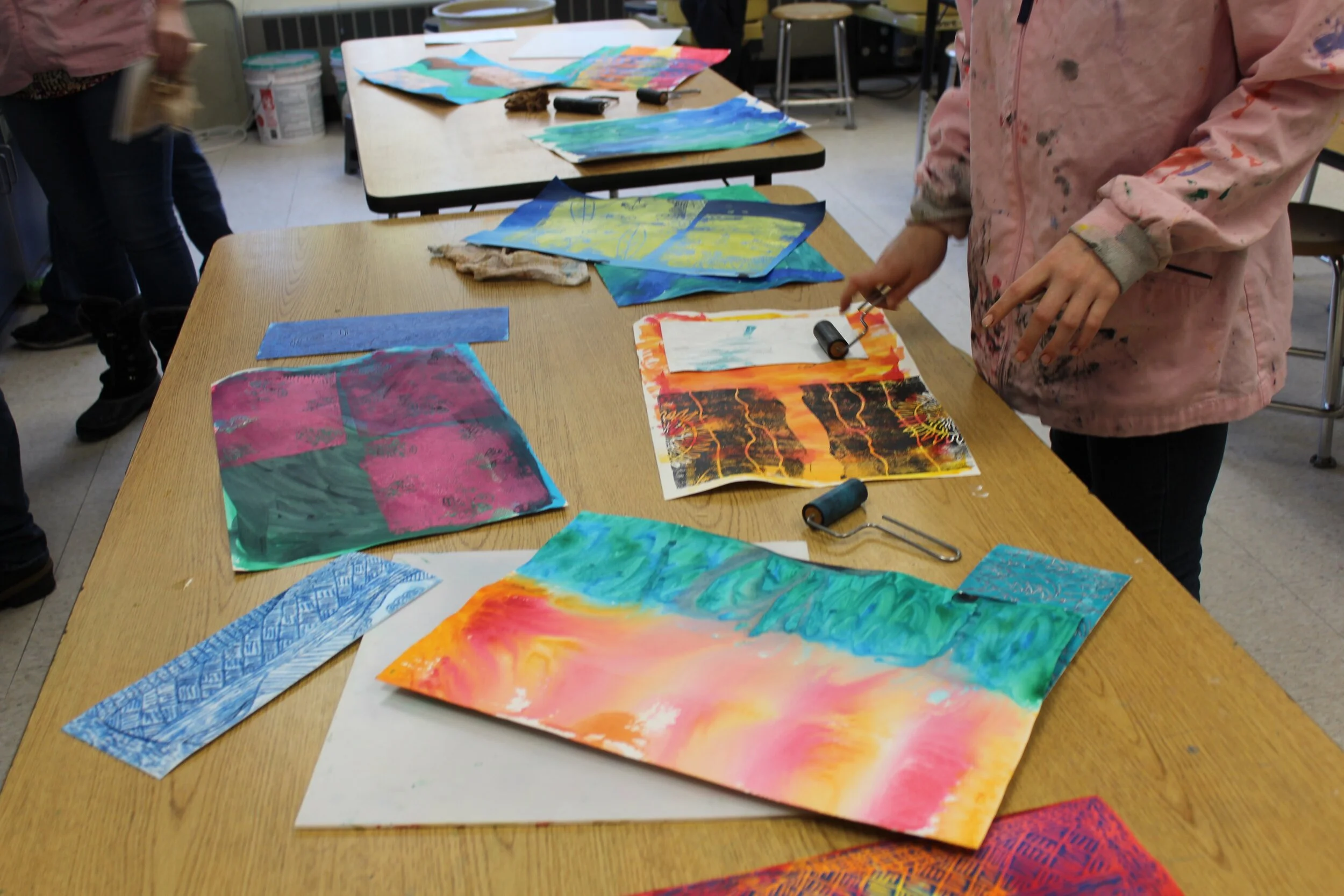Community Quilts Unit
Create a community quilt! Notice shapes, colors, and textures all around you. What do you see? In this unit, students will work individually and collaboratively to design a unique quilt that represents themselves and their community.
This unit is inspired by the work of students, educators, museum educators, and teaching artists in the Stories of the Land and Its People program.
Curricular Connections:
Sensory Writing + Poetry
Observation + Documentation
Interviewing Skills
Geometry
Measurements
History
Vocabulary:
Composition
Shape + Color
Vantage Point
Foreground / Middle-ground / Background
Textiles
Collage + Print-making
Farnsworth collection:
Notice these works of art in the Farnsworth Art Museum collection. How can we use color and shape to tell the story of a place or people? Look carefully at shape, line and color in these works of art. Consider our vantage point or our perspective. What did the artist include or exclude in their story?
activity:
Unknown, Crazy Quilt, 1890, 64.1309
Notice: Look carefully at this textile work of art. What do you notice? How are elements in the composition “stitched” together? What impact does texture, color, and shape have on the layout of the composition?
Expedition + Curricular Connections: What are important places in your community? Who are the people that represent your community? Visit various locations and sketch, photograph, and document what you find. For other perspectives, interview people in your community.
Create: Curate shapes and color to create a “community” square for your quilt. You may use fabric, paper, or other found objects to create texture and dimension.
Exhibit: Share your quilt and the stories you gathered. Create a book, a film, and/or a quilt for display.
Gallery of Student Work:


































Resources:
Guided Noticing Activity: Notice this work of art by artist Marguerite Zorach. What can we learn about this place and the people who live here? Who do we not see included in this depiction? After noticing the work of art, follow along with museum educator Andrea Curtis in a guided noticing activity to learn more about the painting and the artist.
Guided Noticing: Follow along with museum educator Denise Mitchell as she notices this work of art by Louise Nevelson. How does Nevelson represent a sense of place in this painting? What connections does she make to her community?
Stories of the Land and Its People
The Stories of the Land and Its People program encourages student participants to learn about people and places in their community. For more student project examples, visit our Student Exhibitions page.
Developed by:
Andrea L. Curtis, Education Program Manager
Farnsworth Art Museum
Buffy Ludwick, Classroom Educator
Farnsworth Stories Program
Holly Billings, Classroom Educator
Farnsworth Stories Program
Greta Van Campen, Teaching Artist
Farnsworth Art Museum
Contributors:
Not pictured: Kelsey Gibbs, Arts in Education Project Assistant, Farnsworth Art Museum
Developed by Andrea L. Curtis, Farnsworth Art Museum, Arts in Education Program, 2021























